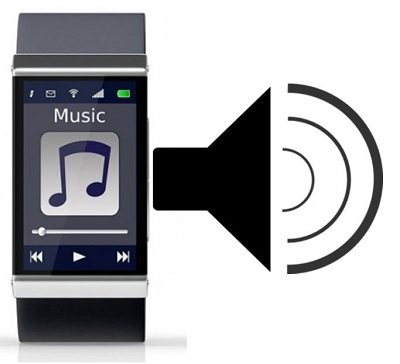The wearable technology device has just been updated to include volume controls, among other things.
Pebble recently rolled out a range of new updates that have added some rather small but quite meaningful improvements to its popular smartwatch, including a few that have been expected for some time now.
Among these updates, one of the most significant is the addition of volume controls to this wearable tech.
Aside from that, the smartphone now also has the ability to recognize apps from the launcher of the device. Owners have been waiting for a long time for the Pebble to offer them the opportunity to control the music volume from their wristwatches, which have been able to control the playback since the wearable tech device first hit the market shelves.
The company announced in a blog post that it was bringing this new control to its smartwatch.
 The blog post read that “It’s been a long time since we first demoed volume control in the Pebble Music app back in the day, so we’re really glad to be bringing this feature onboard.” The wearable tech update also gave the ability for apps to be recognized in its launcher, and for those applications to be manually sorted.
The blog post read that “It’s been a long time since we first demoed volume control in the Pebble Music app back in the day, so we’re really glad to be bringing this feature onboard.” The wearable tech update also gave the ability for apps to be recognized in its launcher, and for those applications to be manually sorted.
In previous versions, the order in which the applications appeared had been static and was not customizable by the wearer. That has been changed in this latest update so that users are able to place items within the launcher into the order that they desire by holding down the select button until the app appears to tremble. It can then be moved to its new position on the list.
These two small but meaningful additions were added as a part of an update to the firmware, itself. This means that the smartwatch users will be required to update their current mobile device app by selecting the support menu and the “check for updates” option. The users of the Pebble through iOS will need to update their iOS application before they will be able to obtain their new firmware. That app was also updated just recently to be able to support the new firmware as well as to add support for iBeacon.
These devices are becoming very popular in the country but so is their development.
A leading tech evangelist in the United States, Robert Scoble, has announced that he feels that Israel will become an important driving force when it comes to the development and shipment of wearable technology in the not too distant future.
He expressed that he feels that we will soon all be donning wearables and many will come from Israel.
Scoble stated that “I think a lot of wearables will come out of Israel”. From the looks of the way that things have been moving, he may be completely right, particularly in terms of the overall adoption of the devices. Wearable technology was virtually unheard of only a couple of years ago, and now it feels as though a new type of device is being launched with each passing week. Everything from smartwatches that can take pictures and receive text messages to fitness bands, and even clothing embedded with sensors that can provide biofeedback and eyeglasses that allow the wearer to surf the web is now available on today’s tech shelves. There are even baby diapers and dog collars already out.
If Scoble is right, as the next waves of wearable technology are released, they will include Israeli innovations.
 Scoble had been in Israel last month as he attended many different events surrounding this first year of the WearableTech Conference, which took place in Tel Aviv. There, participants from a number of different countries looked into the ways in which Israel would be capable of contributing to the wearables sector. What they found was quite promising.
Scoble had been in Israel last month as he attended many different events surrounding this first year of the WearableTech Conference, which took place in Tel Aviv. There, participants from a number of different countries looked into the ways in which Israel would be capable of contributing to the wearables sector. What they found was quite promising.
He pointed out that there is already an infrastructure in place for the expansion of wearables and there are already a number of companies that conduct similar types of research, development, and other related activities within the country. Moreover as Israel also holds a considerable amount of expertise in the area of inkjet printing, the potential for transistors to be sprayed onto virtually anything has also been mentioned.
The Orcam smart glasses have been created there for individuals who are visually impaired, and Intel recently purchased Omek gesture recognition software for $40 million. Clearly, Israel is providing a source of many different elements that can make up a complete wearable technology package.
 The blog post read that “It’s been a long time since we first demoed volume control in the Pebble Music app back in the day, so we’re really glad to be bringing this feature onboard.” The wearable tech update also gave the ability for apps to be recognized in its launcher, and for those applications to be manually sorted.
The blog post read that “It’s been a long time since we first demoed volume control in the Pebble Music app back in the day, so we’re really glad to be bringing this feature onboard.” The wearable tech update also gave the ability for apps to be recognized in its launcher, and for those applications to be manually sorted.
 Scoble had been in Israel last month as he attended many different events surrounding this first year of the WearableTech Conference, which took place in Tel Aviv. There, participants from a number of different countries looked into the ways in which Israel would be capable of contributing to the wearables sector. What they found was quite promising.
Scoble had been in Israel last month as he attended many different events surrounding this first year of the WearableTech Conference, which took place in Tel Aviv. There, participants from a number of different countries looked into the ways in which Israel would be capable of contributing to the wearables sector. What they found was quite promising.